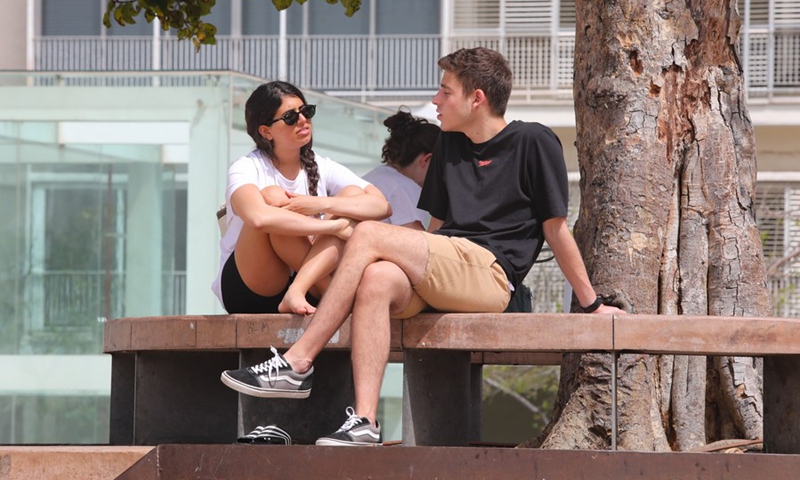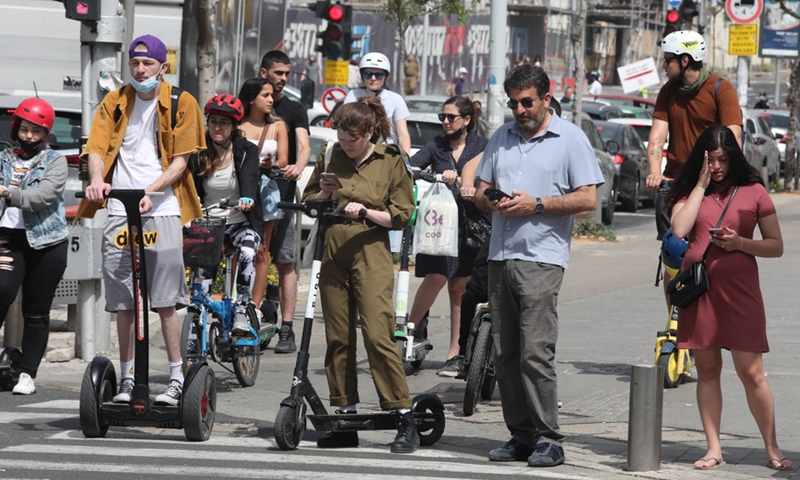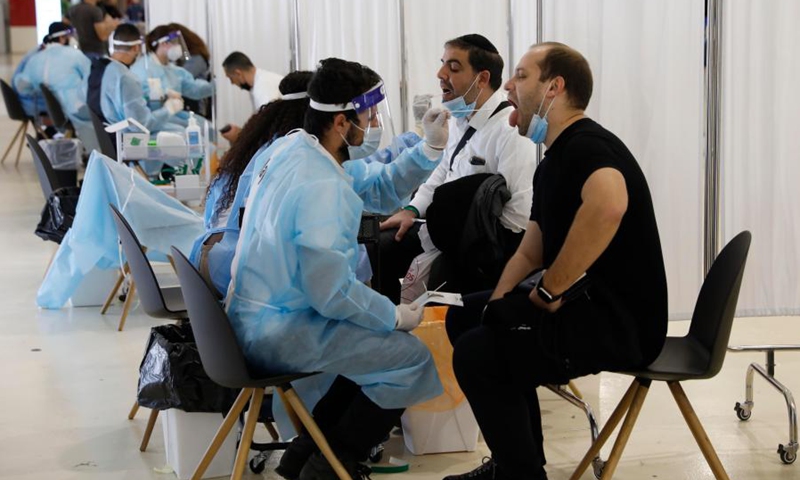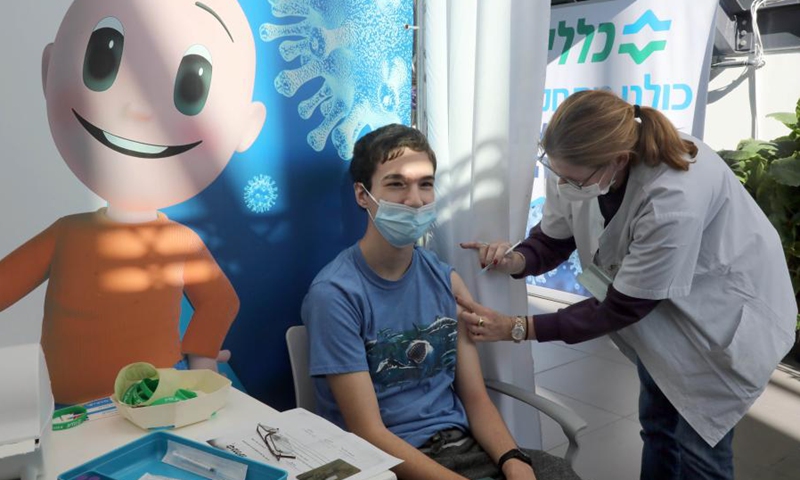
People without masks are seen outdoors in Tel Aviv, Israel, on April 18, 2021.(Photo: Xinhua)

People wait to cross a road in Tel Aviv, Israel, on April 18, 2021.(Photo: Xinhua)

Travelers receive COVID-19 tests upon their arrival at Ben Gurion International Airport near Tel Aviv, Israel, on March 21, 2021. (Photo: Xinhua)

An Israeli teenager receives a dose of COVID-19 vaccine at a Clalit Health Services center in central Israeli city of Tel Aviv on Jan. 23, 2021.(Photo: Xinhua)
Israel lifted the outdoor mask mandate this week, a year after it was instated as a result of the COVID-19 pandemic. At the same time, all of the education system fully opened on Sunday for all ages with full classrooms and no restrictions.
Masks are still required indoors and in mass gatherings outdoors. There is little enforcement of the remaining restrictions.
This was another step to resume the life Israelis knew before the pandemic and was enabled as a result of a mass vaccination drive. Experts in Israel believe the country has reached the coveted herd immunity which enables resumption of pre-pandemic routine.
Since the outbreak of the pandemic last year, over 6,300 Israelis have died. Almost five million Israelis are now fully vaccinated, about half of the population.
The massive inoculation drive has been successful for a number of reasons.
Israel has four HMOs (health maintenance organizations) which give universal health care to all citizens. Their widespread presence from large cities to small, peripheral communities helped launch a speedy and efficient vaccination campaign. With a few clicks on a smartphone, Israelis could schedule an appointment to get vaccinated near their homes.
"We met the populations' needs and there was trust from the public because the health community together with the political leaders came to the public and said this is necessary," said Prof. Hagai Levin, an epidemiologist and public health expert at the Hebrew University in Jerusalem.
"I think that a vaccination campaign of that type needs full participation of the public. People were motivated and therefore we could reach around two percent of the population vaccinated per day and that helped us reach a point where within a few weeks we had almost half of the population covered with those vaccines," said Prof. Cyrille Cohen, vice dean of the Mina and Everard Goodman Faculty of Life Sciences at Bar-Ilan University.
When the vaccines were being rolled out in December 2020, Israelis were eager to line-up. Vaccination centers were crowded and often over-worked.
While the population is largely vaccinated, children below the age of 16 have not yet received the inoculation and it is not clear when this will happen.
However, as the situation in Israel has improved, the whole education system re-opened. Children entered full classrooms after over a year of mainly distance learning. It is a "calculated risk" according to Levin, who believes the "risk to public health is very low."
For youth between the ages of 12-16, emergency approval from the American FDA is expected in the coming weeks. The issue poses a dilemma already being debated heatedly in Israel, where many believe there is still not enough knowledge of the long-term effects of the vaccine on children.
As Israel efficiently sped through the inoculation campaign, it faced criticism that it did not share significant quantities of vaccines with its Palestinian neighbors, even though there was a surplus.
"Is it justified to vaccinate people at very low risk while at the same time in other countries, people at high risk do not have a vaccine. I think we did not respond well in terms of how we prioritize vaccines around the world," Levin said.
Many health officials in the country have said it is in Israel's interest to help vaccinate the Palestinian population, which interacts with Israelis on a daily basis as lives are deeply intertwined. Israel has provided a slow trickle of vaccines to the Palestinian territories.
The main challenge Israel faces now is the risk of new variants that may be immune to the vaccine, potentially creating a renewed outbreak. This requires vigilance at a time when many of the systems and the people in the country have just began to lower their guard.
On the other hand, the health care system is now more available to deal with long-term planning as the urgency of the pandemic has subsided.
Israel will be allowing in May vaccinated foreign tourists in the country. This could also tip the balance.
"We need to continue to improve our epidemiological and molecular surveillance system and to build a system that can better respond if new variants come," said Levin.
"We need to learn from the pandemic how we better prepare and respond to public health emergencies because as we all realize, health it so important for all of us," he noted.
